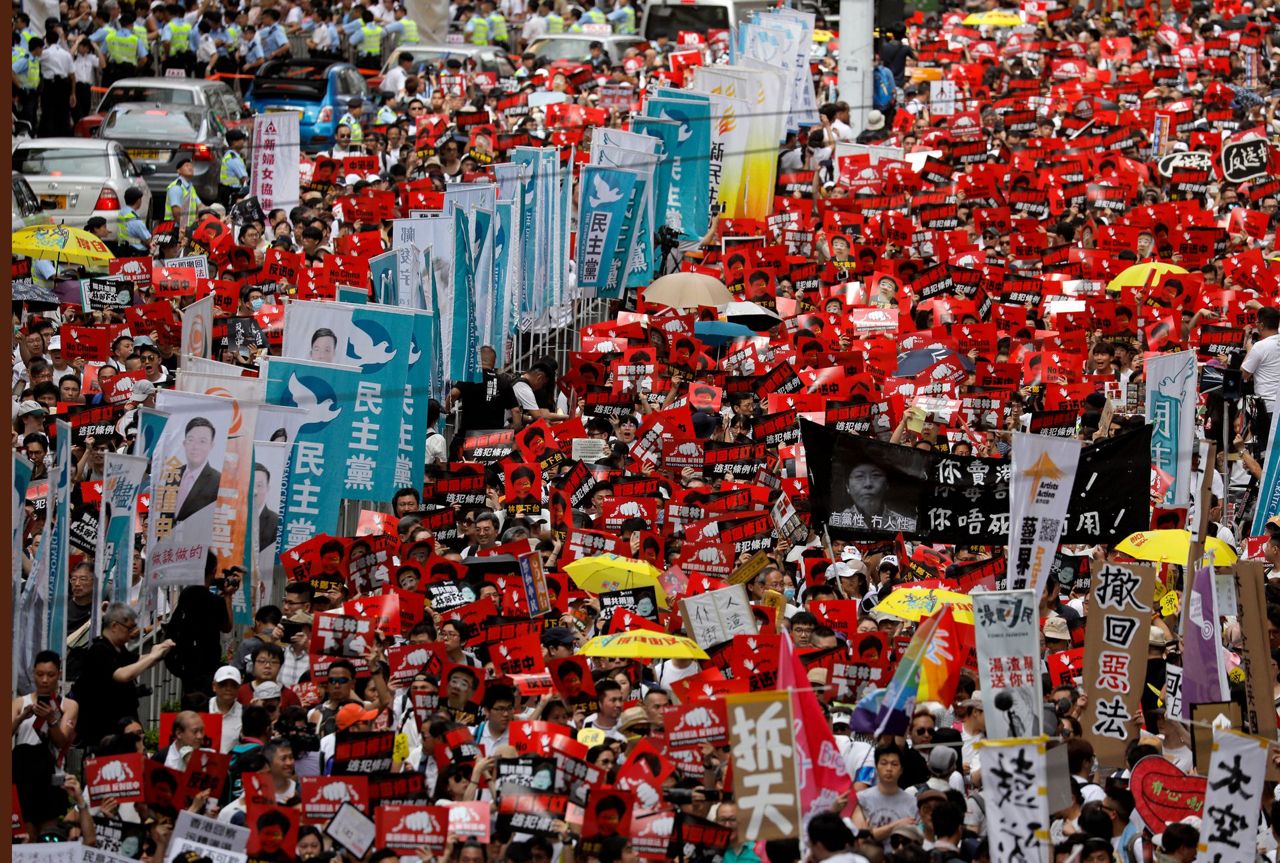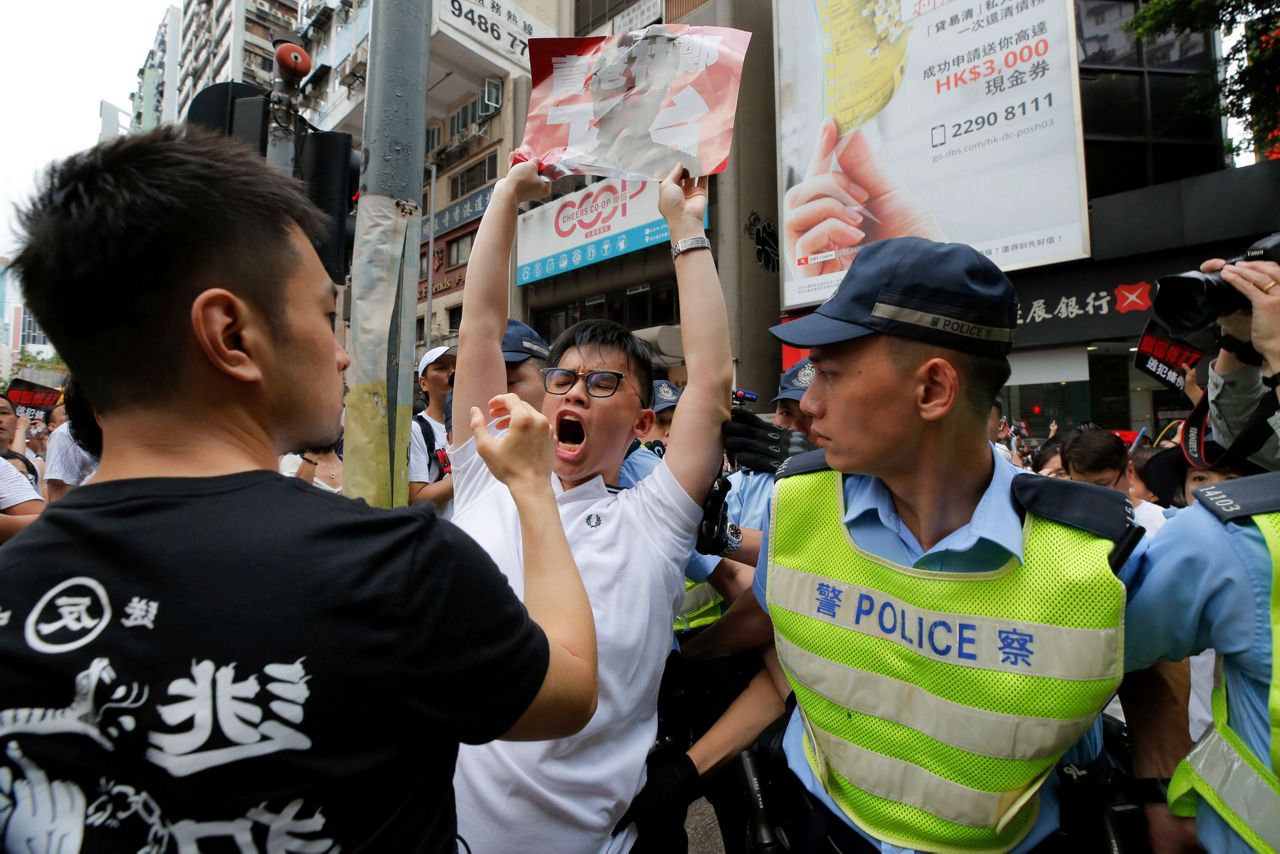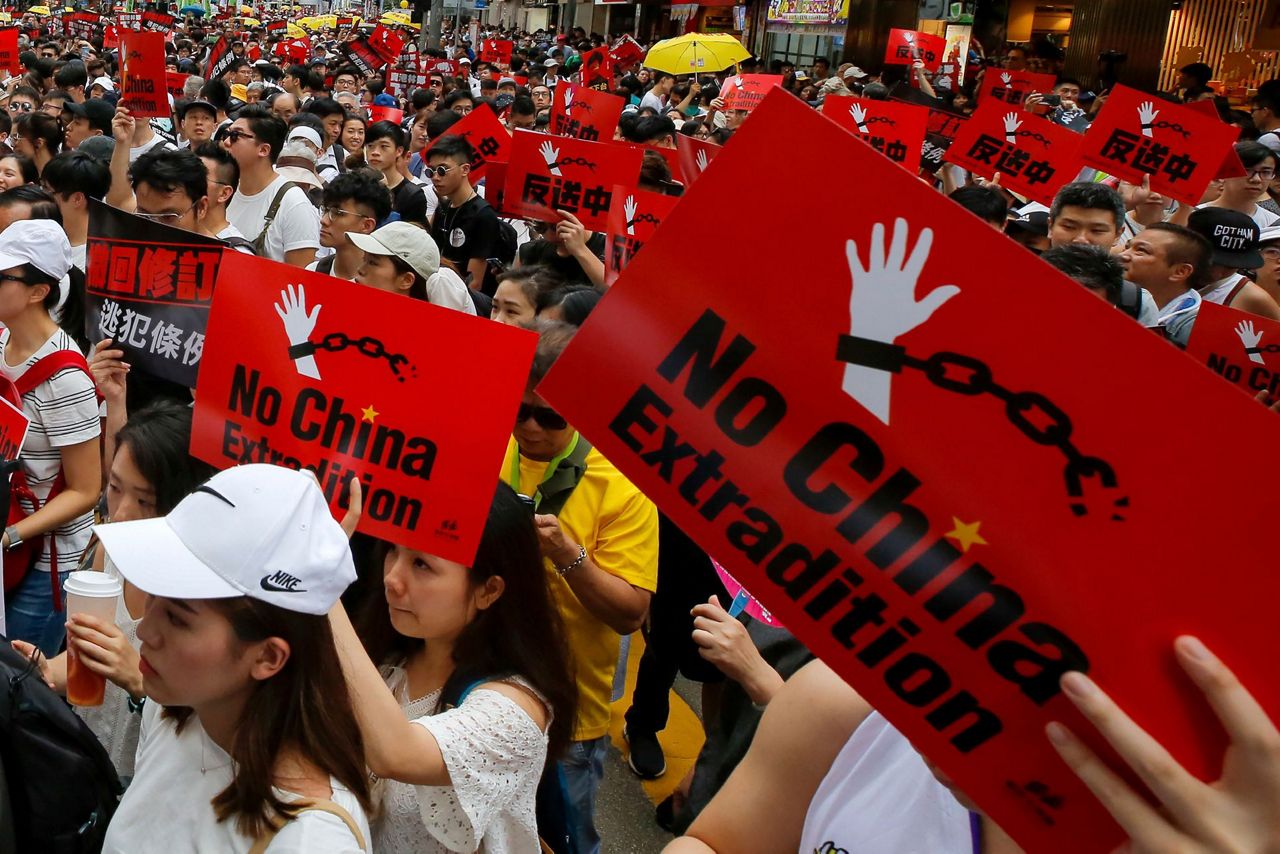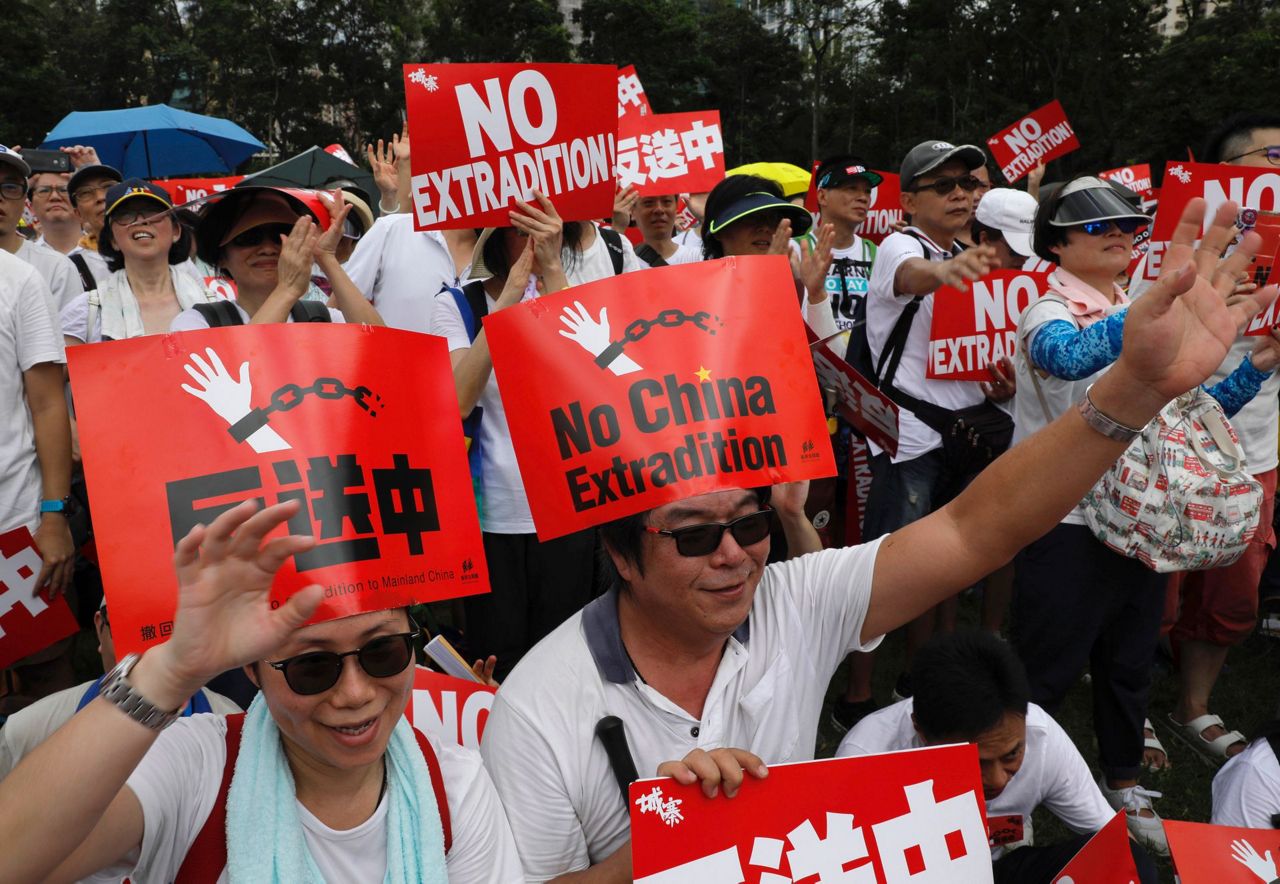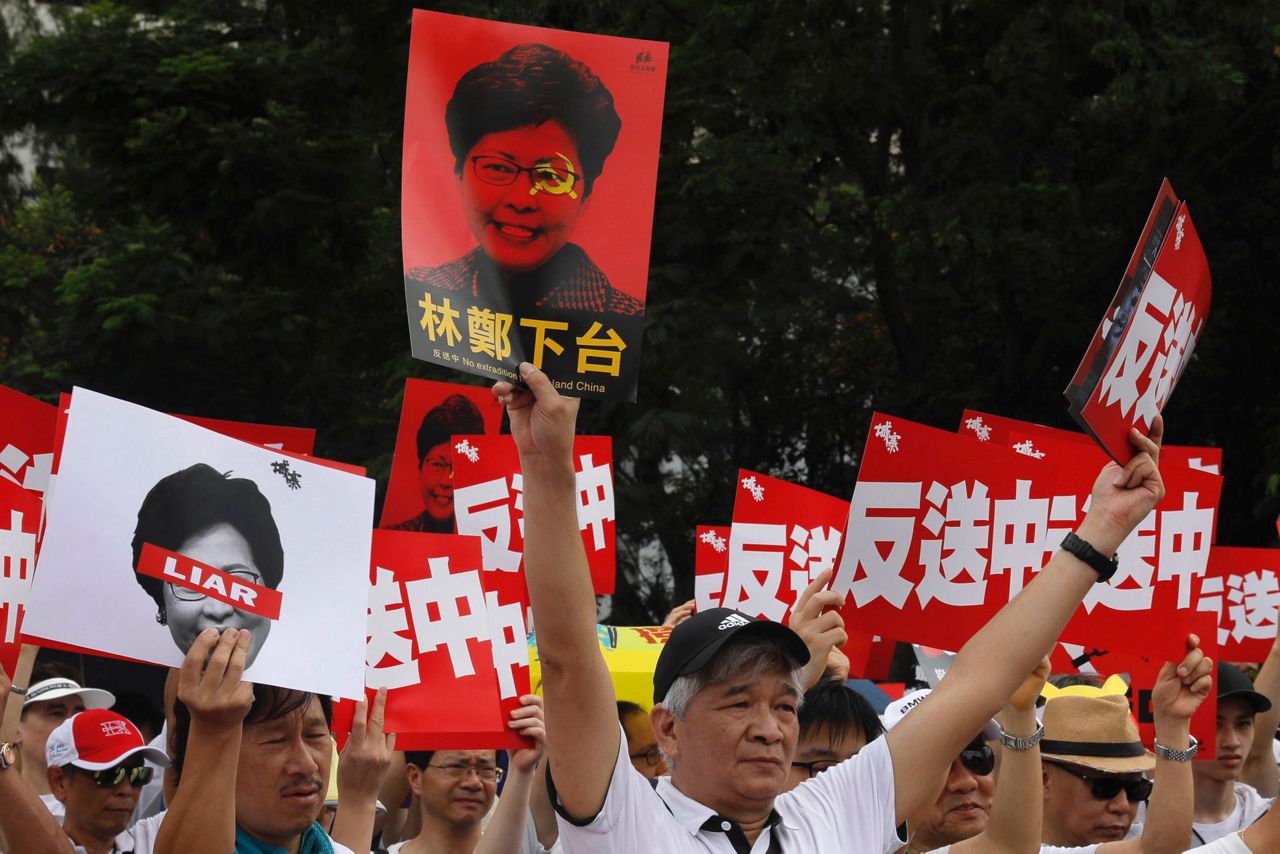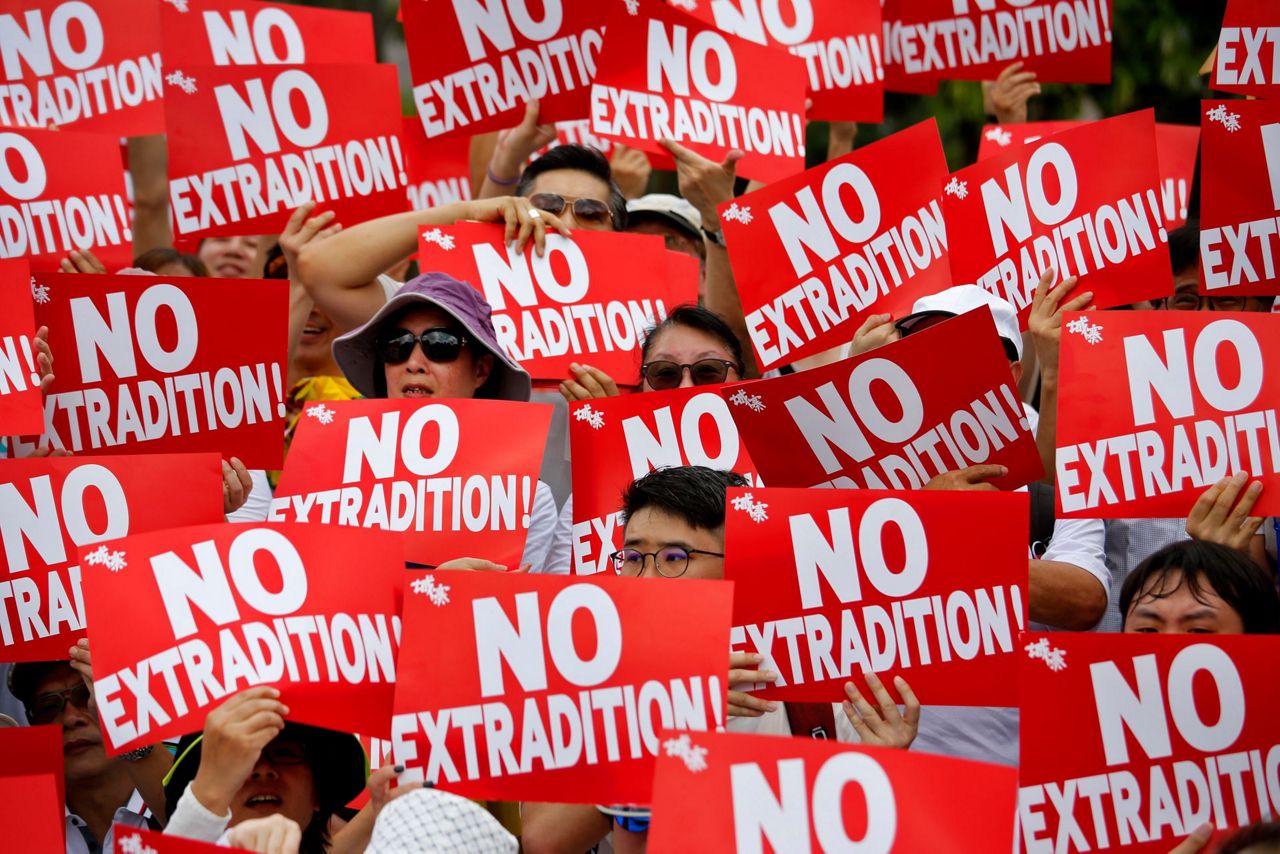HONG KONG (AP) — Hundreds of thousands of protesters marched through Hong Kong on Sunday to voice their opposition to government-sponsored legislation that would allow people to be extradited to mainland China to face charges.
The massive demonstration took place three days before the semi-autonomous Chinese territory's government plans to bring the highly contentious bill to the full legislature, bypassing the committee process, in a bid to win approval by the end of the month.
Police estimated the crowd at 240,000, but organizers said more than 1 million took part.
The protest appeared to be even bigger than a massive pro-democracy demonstration in 2003 against a proposed national security law, according to Associated Press journalists who covered both events.
Marchers of all ages took part, some pushing strollers and others carrying canes, chanting slogans in the native Cantonese dialect in favor of greater transparency in government.
Tommy Lam, 29, was among the throng, a member of the younger generation who've grown up enjoying relative prosperity but also growing insecurity about what many see as an erosion of the rights Hong Kong residents have enjoyed.
"All these people coming out and marching sends a definite message," said Lam, who is working on his master's degree in economics. "If the government doesn't listen, there will be tension."
Alex Ng, a 67-year-old retiree, said he joined the protest because "I think that there was never any public consultation about this law, and there are a lot of uncertainties."
Hong Kong's leader, Carrie Lam, has pushed forward with the legislation despite widespread criticism from human rights and business groups. The amendments have been widely criticized as eroding Hong Kong's judicial independence by making it easier to send criminal suspects to mainland China, where they could face vague national security charges and unfair trials.
"What can we do to get Carrie Lam to listen to us, how many people have to come out to make her reconsider listening to the public?" said Miu Wong, a 24-year-old office worker who was among the protesters.
Hong Kong was guaranteed the right to retain its own social, legal and political systems for 50 years following its handover from British to Chinese rule in 1997, the so-called "one country, two systems" framework. However, China's ruling Communist Party has been seen as increasingly reneging on that agreement by forcing through unpopular legal changes.
Hong Kong currently limits extraditions to jurisdictions with which it has existing extradition agreements or to others on an individual basis under a law passed before 1997.
China was excluded because of concerns over its poor record on legal independence and human rights. In recent years, mainland authorities have gone after opponents by accusing them of dubious crimes such as tax evasion, crystalizing worries among critics and others.
Lam's government argued that the revisions were needed to close legal loopholes, while opponents say that is merely an excuse to pursue China's agenda of reducing Hong Kong's legal independence.
Hong Kong's Legislative Council plans to vote on the amended Fugitive Offenders Ordinance and the Mutual Legal Assistance in Criminal Matters Ordinance on Wednesday.
Copyright 2019 The Associated Press. All rights reserved. This material may not be published, broadcast, rewritten or redistributed.



